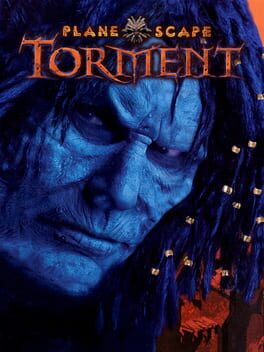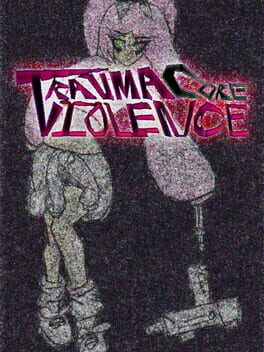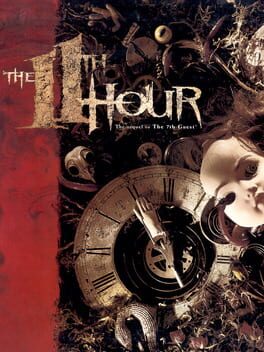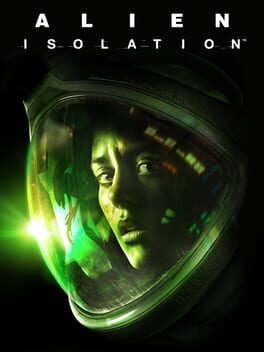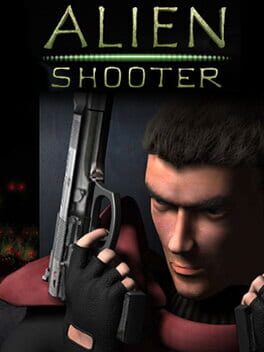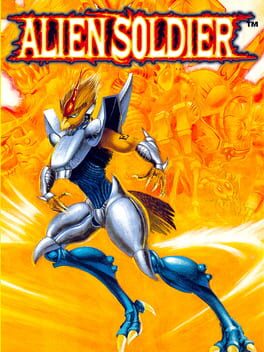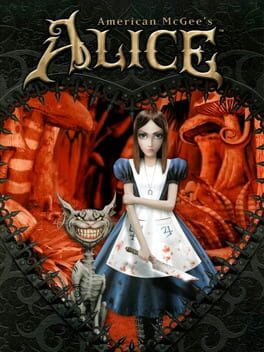MochiRave
36 reviews liked by MochiRave
This is strictly reviewing the base-game content of A Realm Reborn (not including the post-patch epilogue quests leading into Heavensward).
I COMPLETELY understand why most people will tell you to either play through ARR as fast as possible or buy the skip and watch a story recap, because, unfortunately, yes, it is a fairly substandard by-the-numbers Final Fantasy story. The game does NOT do a lot to make itself very engaging to play outside of a couple dungeons nearing the end of the story. If you're not familiar with the prior story of what this game was before ARR, most of the characters in the story will seem paper-thin and unimpressive. It's a shame really, because there's a ton of characters here that were given a good amount of depth prior to ARR that you simply will not see reflected here.
But honestly? All of these negatives, which in other games might be enough for me to drop them, did not really bother me all too much. It was probably because I was playing a Lalafell Warrior because the idea of being a tiny guy running around holding all the aggro was really funny to me, and I honestly had a pretty good time getting to play that out. I did a duty roulette once where I got put into a premade group of three Miqo'te girls and they all patted me on the head before leaving the instance when we finished. So that was pretty cool.
Much of me has been... 'trained', I guess, to really pay attention to the inner workings of games to evaluate them. My angle with games is often to analyze mechanics, understand what various systems exist in the game and see how they interact or don't. Yet, MMOs, a genre that I've only recently experienced through vanilla WoW private servers (rest in piece nostalrius) and like two weeks of playing Runescape on my second monitor, can't really be held to this standard. It might be more accurate to say that it isn't fair to hold them to this standard, mainly because the 'massively multiplayer' aspect of MMOs adds a lot of gray areas when it comes to forming a concrete 'objective' analysis of video games. In single player-games, regardless of how many different playstyles any single game might be able to account for in it's design, the ways a player interfaces with the game appear countably finite. Every player, regardless of specific choices in their gameplay, will encounter the same problems, story checkpoints and other scenarios that effectively funnel the immersion and agency of the player into predetermined outcomes. It's not possible for developers to create a truly unique outcome for every different way a player may approach a problem. MMOs, being intrinsically social games, are designed to truly offer a scope of choice most single-player experiences simply aren't equipped to replicate. What this leads to is several different strata and substrata of players who are all playing the same game, but for entirely different purposes and goals. This is how you get people like pure-crafters, immersive role-players, the Limsa Lominsa catgirls, and even player groups and discords solely bonded because they all chose to play as Lalafells. The scope of MMOs is something more traditional and technical frameworks for understanding games can't really talk about without missing the forest for the trees. I really hope i'm using that metaphor correctly.
Point being, I think Final Fantasy XIV is a pretty special game, through and through. For every part that
[We are announcing the end of this review of Final Fantasy XIV Online. We thank all readers of the review for the time and energy they have spent in reading and supporting this publication. If we had a cool seven minute long music video to commemorate this occasion, this is where we'd put it.]
I COMPLETELY understand why most people will tell you to either play through ARR as fast as possible or buy the skip and watch a story recap, because, unfortunately, yes, it is a fairly substandard by-the-numbers Final Fantasy story. The game does NOT do a lot to make itself very engaging to play outside of a couple dungeons nearing the end of the story. If you're not familiar with the prior story of what this game was before ARR, most of the characters in the story will seem paper-thin and unimpressive. It's a shame really, because there's a ton of characters here that were given a good amount of depth prior to ARR that you simply will not see reflected here.
But honestly? All of these negatives, which in other games might be enough for me to drop them, did not really bother me all too much. It was probably because I was playing a Lalafell Warrior because the idea of being a tiny guy running around holding all the aggro was really funny to me, and I honestly had a pretty good time getting to play that out. I did a duty roulette once where I got put into a premade group of three Miqo'te girls and they all patted me on the head before leaving the instance when we finished. So that was pretty cool.
Much of me has been... 'trained', I guess, to really pay attention to the inner workings of games to evaluate them. My angle with games is often to analyze mechanics, understand what various systems exist in the game and see how they interact or don't. Yet, MMOs, a genre that I've only recently experienced through vanilla WoW private servers (rest in piece nostalrius) and like two weeks of playing Runescape on my second monitor, can't really be held to this standard. It might be more accurate to say that it isn't fair to hold them to this standard, mainly because the 'massively multiplayer' aspect of MMOs adds a lot of gray areas when it comes to forming a concrete 'objective' analysis of video games. In single player-games, regardless of how many different playstyles any single game might be able to account for in it's design, the ways a player interfaces with the game appear countably finite. Every player, regardless of specific choices in their gameplay, will encounter the same problems, story checkpoints and other scenarios that effectively funnel the immersion and agency of the player into predetermined outcomes. It's not possible for developers to create a truly unique outcome for every different way a player may approach a problem. MMOs, being intrinsically social games, are designed to truly offer a scope of choice most single-player experiences simply aren't equipped to replicate. What this leads to is several different strata and substrata of players who are all playing the same game, but for entirely different purposes and goals. This is how you get people like pure-crafters, immersive role-players, the Limsa Lominsa catgirls, and even player groups and discords solely bonded because they all chose to play as Lalafells. The scope of MMOs is something more traditional and technical frameworks for understanding games can't really talk about without missing the forest for the trees. I really hope i'm using that metaphor correctly.
Point being, I think Final Fantasy XIV is a pretty special game, through and through. For every part that
[We are announcing the end of this review of Final Fantasy XIV Online. We thank all readers of the review for the time and energy they have spent in reading and supporting this publication. If we had a cool seven minute long music video to commemorate this occasion, this is where we'd put it.]
If there’s anything in this world worth keeping alive, it’s love.
In the void that is Revachol, we see the light of love and hope slowly fade away. It is up to us to cultivate and nurture that light so it does not die. Love is not dead! As you read this, you are alive and breathing, and it's up to you to seize what remains and fight for it. We can no longer wait for some great revolution that will fix all of our problems. If you truly desire a revolution, you must create the conditions necessary to birth it!
Disco Elysium isn’t just a game about what political faction you align with or finding out who lynched the man behind Whirling-in-Rags; it’s a story about love and why we must hold onto it, even in the darkest of times. I understand that nowadays, with the current state of affairs, it's hard to believe in love and hope. It's difficult to place our hope in a future that seems to have been stolen away from us, yet that's precisely when we need it the most.
I choose to believe in love. I choose to hold on to the hope that a better future is possible, no matter what, because I believe it is. The people we know, the community we live in, and the world we inhabit are worth fighting for. Disco Elysium taught me that fixing the world and making it a better place isn’t just about picking up a gun and waging some violent revolution; it’s about cultivating community and caring for those in it. That’s where the true beauty of Disco Elysium lies.
I believe the way this game conveys that message is quite powerful. Disco doesn't make some grand showy gesture beating you over the head with its message; instead, it laboriously takes the time to show you that the world you live in is beautiful and worth fighting for. It spends the time showing you the inner lives of those around you and has you helping them, one person at a time.
There is one specific character that I feel best embodies this: Cuno. Cuno, at first, is seen to be an irrational, difficult, vulgar, and poorly-behaved child, which leads you to inevitably hate him. As you learn more about Cuno and his home life, however, you realise there’s something greater at play. He doesn’t act out for the hell of it; he is the way he is because his father is a drunk who’s fallen down on his luck due to becoming a victim of the system giving up on him and his son. He’s left with no choice. The system has abandoned Uuno and his son, leaving them both to fend for themselves and pick up the pieces. Which sadly isn’t uncommon in Revachol and the real world as well. It’s perhaps one of the most striking and poignant stories in the game. I eventually went from despising Cuno to feeling empathy for him, as I did for many others in Revachol when I learned their stories.
I believe this approach to storytelling and character writing is incredibly effective, and the best part about Disco Elysium is that these kinds of stories are all over the game. This goes to show how much love and care was put into humanising the inhabitants of Revachol, which helps make the world feel alive. Because of how well the game fleshed out its world and characters Disco Elysium was successful at conveying the message that this world is worth fighting for. Not only was I captivated by this world, but as the game drew to a close, I found myself deeply invested in the wellbeing of these characters and the city.
As I learned about these stories, Revachol’s history, and the many political factions vying for power, I realised that this game was never about solving a murder or finding which faction is "correct." It was about learning to love those around us and working together to create a better world, one step at a time. Creating a better world was never an unattainable goal conjured up in the minds of idealistic and "ignorant" kids. It is a possible reality, but it demands the working toiling masses of the world unite and work hand in hand in creating this future. It is on us to seize the future and lift eachother up when we need it most.
Never give up on fighting for this future. It is only dead when you allow yourself to be convinced that it is.
In the void that is Revachol, we see the light of love and hope slowly fade away. It is up to us to cultivate and nurture that light so it does not die. Love is not dead! As you read this, you are alive and breathing, and it's up to you to seize what remains and fight for it. We can no longer wait for some great revolution that will fix all of our problems. If you truly desire a revolution, you must create the conditions necessary to birth it!
Disco Elysium isn’t just a game about what political faction you align with or finding out who lynched the man behind Whirling-in-Rags; it’s a story about love and why we must hold onto it, even in the darkest of times. I understand that nowadays, with the current state of affairs, it's hard to believe in love and hope. It's difficult to place our hope in a future that seems to have been stolen away from us, yet that's precisely when we need it the most.
I choose to believe in love. I choose to hold on to the hope that a better future is possible, no matter what, because I believe it is. The people we know, the community we live in, and the world we inhabit are worth fighting for. Disco Elysium taught me that fixing the world and making it a better place isn’t just about picking up a gun and waging some violent revolution; it’s about cultivating community and caring for those in it. That’s where the true beauty of Disco Elysium lies.
I believe the way this game conveys that message is quite powerful. Disco doesn't make some grand showy gesture beating you over the head with its message; instead, it laboriously takes the time to show you that the world you live in is beautiful and worth fighting for. It spends the time showing you the inner lives of those around you and has you helping them, one person at a time.
There is one specific character that I feel best embodies this: Cuno. Cuno, at first, is seen to be an irrational, difficult, vulgar, and poorly-behaved child, which leads you to inevitably hate him. As you learn more about Cuno and his home life, however, you realise there’s something greater at play. He doesn’t act out for the hell of it; he is the way he is because his father is a drunk who’s fallen down on his luck due to becoming a victim of the system giving up on him and his son. He’s left with no choice. The system has abandoned Uuno and his son, leaving them both to fend for themselves and pick up the pieces. Which sadly isn’t uncommon in Revachol and the real world as well. It’s perhaps one of the most striking and poignant stories in the game. I eventually went from despising Cuno to feeling empathy for him, as I did for many others in Revachol when I learned their stories.
I believe this approach to storytelling and character writing is incredibly effective, and the best part about Disco Elysium is that these kinds of stories are all over the game. This goes to show how much love and care was put into humanising the inhabitants of Revachol, which helps make the world feel alive. Because of how well the game fleshed out its world and characters Disco Elysium was successful at conveying the message that this world is worth fighting for. Not only was I captivated by this world, but as the game drew to a close, I found myself deeply invested in the wellbeing of these characters and the city.
As I learned about these stories, Revachol’s history, and the many political factions vying for power, I realised that this game was never about solving a murder or finding which faction is "correct." It was about learning to love those around us and working together to create a better world, one step at a time. Creating a better world was never an unattainable goal conjured up in the minds of idealistic and "ignorant" kids. It is a possible reality, but it demands the working toiling masses of the world unite and work hand in hand in creating this future. It is on us to seize the future and lift eachother up when we need it most.
Never give up on fighting for this future. It is only dead when you allow yourself to be convinced that it is.
Planescape: Torment
1999
My journey across The Planes has taken me to places that most men believe exist only in the realm of thought. These places I travelled to, the people I met, and the conversations I had fundamentally changed me as a person. I don’t fully know how, but regardless, I know some sort of change occurred. Perhaps writing about my experience with Planescape will help me better understand these changes and the person I am today.
When I was 14, I discovered Planescape: Torment, and while I thought the game was awesome, I could never really engage with the questions the game posed to me. I mean, how could I? What would the question “What can change the nature of a man?” mean to a 14-year-old who was only beginning to grapple with the concept of its own being? Looking back, it meant nothing to me. Now that I am an adult, however, the question means much more to me. Part of me is ashamed to admit I haven’t always been a ‘good’ person. Learning to be kind, understanding, mature, and responsible took me many years of struggling and hardship to achieve. Even today, I still struggle with this, but through that struggle, I came to learn more about myself and my nature. I can’t fully codify into words what my “nature” or “self” are because they are concepts that exist beyond language. Language can at times be limiting, so I look to art to help me look inward and better conceptualise these thoughts and feelings. I feel as though Planescape stirred the part of my soul that sought these answers, and despite it not giving me concrete answers, I feel satisfied with the new questions it posed to me. To me, good art never seeks to speak for the reader but instead provides them with the tools necessary to create subjective meaning from the experience they have with it. I believe Planescape does this quite well; I’d even go so far as to argue that it fully agrees with me here. When The Nameless One is posed the question, “What can change the nature of a man?” the game does not have him provide a concrete answer to the player. Instead, we are left with the game giving us the tools necessary to begin constructing our own answer to that question as the credits roll. Currently, I don't have an answer to that question, and I'm not sure if I will even have one a decade from now, but I'm okay with that. Part of growing up meant that I had to learn to be content with not always having an answer for everything; perhaps not every question needed an answer.
There’s more I could write, but perhaps it’s best that some things remain unwritten. I would love to endlessly navel-gaze, but that wouldn’t do me or you, the reader, any good. I apologise to anyone here who expected a formal review and was met instead by my self-indulgent introspection. There's really not much I can say about Planescape that hasn't already been said; it's an awesome ass game, and it deserves the reputation it has made for itself, enough said.
Anyways, I’d like to end this short write-up by saying that if you haven’t already played Planescape: Torment, you owe it to yourself to take that journey across The Planes. Sigil is known as the ‘City of Doors’, after all, so why don’t you look inside and see where one of them takes you?
When I was 14, I discovered Planescape: Torment, and while I thought the game was awesome, I could never really engage with the questions the game posed to me. I mean, how could I? What would the question “What can change the nature of a man?” mean to a 14-year-old who was only beginning to grapple with the concept of its own being? Looking back, it meant nothing to me. Now that I am an adult, however, the question means much more to me. Part of me is ashamed to admit I haven’t always been a ‘good’ person. Learning to be kind, understanding, mature, and responsible took me many years of struggling and hardship to achieve. Even today, I still struggle with this, but through that struggle, I came to learn more about myself and my nature. I can’t fully codify into words what my “nature” or “self” are because they are concepts that exist beyond language. Language can at times be limiting, so I look to art to help me look inward and better conceptualise these thoughts and feelings. I feel as though Planescape stirred the part of my soul that sought these answers, and despite it not giving me concrete answers, I feel satisfied with the new questions it posed to me. To me, good art never seeks to speak for the reader but instead provides them with the tools necessary to create subjective meaning from the experience they have with it. I believe Planescape does this quite well; I’d even go so far as to argue that it fully agrees with me here. When The Nameless One is posed the question, “What can change the nature of a man?” the game does not have him provide a concrete answer to the player. Instead, we are left with the game giving us the tools necessary to begin constructing our own answer to that question as the credits roll. Currently, I don't have an answer to that question, and I'm not sure if I will even have one a decade from now, but I'm okay with that. Part of growing up meant that I had to learn to be content with not always having an answer for everything; perhaps not every question needed an answer.
There’s more I could write, but perhaps it’s best that some things remain unwritten. I would love to endlessly navel-gaze, but that wouldn’t do me or you, the reader, any good. I apologise to anyone here who expected a formal review and was met instead by my self-indulgent introspection. There's really not much I can say about Planescape that hasn't already been said; it's an awesome ass game, and it deserves the reputation it has made for itself, enough said.
Anyways, I’d like to end this short write-up by saying that if you haven’t already played Planescape: Torment, you owe it to yourself to take that journey across The Planes. Sigil is known as the ‘City of Doors’, after all, so why don’t you look inside and see where one of them takes you?
The backwater swamps of Louisiana have darkness hiding deep in their midst. The Baker family estate oozes this darkness and invites you to look deeper. The siren call of the Baker estate is equal parts alluring and off-putting; it’s arguably the most well-designed and haunting setting within a horror game to date. Its derelict and rotted-out interiors are meticulously constructed in such a way as to leave you feeling unnerved and repulsed by the rot and mould that surrounds you. The gameplay also lends itself well to the game's setting and design, as it reigns in the camera to a first-person view and disempowers the player, which is in stark contrast to Resident Evil 4, 5, and 6, which upped the ante action-wise and emphasised faster gameplay. It’s a nice change of pace and helps strengthen the feeling of intimate slow-burn horror it sets out to achieve, which is nearly ever-present for most of the game. In almost all areas, Biohazard excels at everything it sets out to do and cements itself as a modern classic of survival horror.
Abzu
2016
TraumaCore Violence
2023
NBA 2K24
2023
Final Fantasy VIII
1999
ff8 is a game that is very hard for me to compile my thoughts on, but i thought i might as well try now that it's been a bit since i've finished it
i can get 8 not being somebody's favorite final fantasy, but this is such a beautiful piece of art to me that it feels like most of the game's bad reputation is just a mass gaslighting campaign perpetuated by early 2000s gaming magazines and kept alive by people who are scared of earnest emotionality in their video games. not everything that happens in this game is necessarily logical and it does have its flaws—the main antagonist is good but far from the series strongest and the disc 2 twist, while not nearly as bad as anyone has ever made it out to be, is delivered a little bit clumsily—but i feel like that's in service of being such an emotionally resonant game that it can barely be seen as a downside. the story of squall and rinoa is so beautiful to me in a way that so few love stories between a man and a woman can be for me and there were multiple points where i started to tear up a bit just because of how much i loved my experience with 8's story and characters.
when it comes to ff8's gameplay the junction system is unironically one of the few times that the atb battle system has been even remotely enjoyable, and while it isn't as strong mechanically as materias from 7 and the tutorials conveying the system in game aren't the best, i think it's a bit sad how having to engage with the mechanics differently is enough to put people off to the game's combat. with just a little bit more time in the oven and an audience more willing to engage with change, the junction system would probably be one of the most celebrated battle systems in any square enix jrpg with dickriders at the level of smirk and press turn from smt, and maybe in general final fantasy 8 would be more celebrated for the amazing game that it deserves to be seen as.
also gunblades are raw as shit and are by far the coolest weapon that any square enix game has ever had don't @ me
i can get 8 not being somebody's favorite final fantasy, but this is such a beautiful piece of art to me that it feels like most of the game's bad reputation is just a mass gaslighting campaign perpetuated by early 2000s gaming magazines and kept alive by people who are scared of earnest emotionality in their video games. not everything that happens in this game is necessarily logical and it does have its flaws—the main antagonist is good but far from the series strongest and the disc 2 twist, while not nearly as bad as anyone has ever made it out to be, is delivered a little bit clumsily—but i feel like that's in service of being such an emotionally resonant game that it can barely be seen as a downside. the story of squall and rinoa is so beautiful to me in a way that so few love stories between a man and a woman can be for me and there were multiple points where i started to tear up a bit just because of how much i loved my experience with 8's story and characters.
when it comes to ff8's gameplay the junction system is unironically one of the few times that the atb battle system has been even remotely enjoyable, and while it isn't as strong mechanically as materias from 7 and the tutorials conveying the system in game aren't the best, i think it's a bit sad how having to engage with the mechanics differently is enough to put people off to the game's combat. with just a little bit more time in the oven and an audience more willing to engage with change, the junction system would probably be one of the most celebrated battle systems in any square enix jrpg with dickriders at the level of smirk and press turn from smt, and maybe in general final fantasy 8 would be more celebrated for the amazing game that it deserves to be seen as.
also gunblades are raw as shit and are by far the coolest weapon that any square enix game has ever had don't @ me
Persona 3 Reload
2024
Although I am not at the finish line of P3R just yet, I figured it would be best for me to put out something representative of my love for this game in between sessions, as my thoughts are more thoroughly collected. I am damn near close to 2 consecutive weeks of playing (12/14) and have just breached 60 hours of gameplay. On track to obtain a platinum trophy on my first playthrough, it feels good to be reminded of why I loved an older title I have played, and it feels even better to be reminded that the people behind said game still "get it."
Persona 3 Reload sits comfortably well above the other remakes and remasters of any game I have ever played, and it will continue to do so either for a long while, or forever.
For the longest time, integration of styles and gameplay similar to that of Persona 5 never rubbed me the right way. I was anticipating this game to be a massive stinker. Something in the vein of Atlus trying to cobble together something to milk even more money off of their best selling game. I am sure most people are aware of Persona 5 Tactica, Scramble, and X. I am in not any type of position to commentate on their quality, but the reception of these games amongst my peers has led me to a train of thought to be quite weary of what Atlus decides to output next. But their continuations of an aesthetic spawned from their best selling title into something that is seemingly absolutely unlike it reeked of creative bankruptcy. That being said, I was wrong.
And I couldn not be happier about it.
Everything from the reestablished visuals, voice acting, to the gameplay and even the music. I have not the slightest hint of a complaint or grievance. P3R's UI is an absolute gem to witness, it is fluid, intuitive, and has an identity of its own. The new cast of voices are out of this world, Yuko's especially. All of the voice actors put on a spectacular performance and their ability to encapsulate you in the world of the game is unreal. Having finished P5R's merciless mode and not having that great of an experience, I decided to go into my P3R playthrough with merciless mode, and I am having an absolutely great time with it. Theurgies add much to the strategizing and in addition with keeping the "1 more" system, I enjoy the gameplay so much more for the depth it brings. All of the remixed tracks are wonderful in their own regards, at first stuff like "Mass Destruction" did not rub me too well, but over time I broke in and I love it much like the original track, likewise the others. Truly a remake that lives up to and, in some instances, surpasses the existence of its source. I can not wait to play through P3P and watch the films and whatever extra content there is to finish up the whole complete Persona 3 experience.
Persona 3/FES and Persona 3 Reload will atmospherically provide different experiences (assuming people care about that) but otherwise I honestly can not see a reason to not play this game. It feels so good to be in love with a Persona game again.
Persona 3 Reload sits comfortably well above the other remakes and remasters of any game I have ever played, and it will continue to do so either for a long while, or forever.
For the longest time, integration of styles and gameplay similar to that of Persona 5 never rubbed me the right way. I was anticipating this game to be a massive stinker. Something in the vein of Atlus trying to cobble together something to milk even more money off of their best selling game. I am sure most people are aware of Persona 5 Tactica, Scramble, and X. I am in not any type of position to commentate on their quality, but the reception of these games amongst my peers has led me to a train of thought to be quite weary of what Atlus decides to output next. But their continuations of an aesthetic spawned from their best selling title into something that is seemingly absolutely unlike it reeked of creative bankruptcy. That being said, I was wrong.
And I couldn not be happier about it.
Everything from the reestablished visuals, voice acting, to the gameplay and even the music. I have not the slightest hint of a complaint or grievance. P3R's UI is an absolute gem to witness, it is fluid, intuitive, and has an identity of its own. The new cast of voices are out of this world, Yuko's especially. All of the voice actors put on a spectacular performance and their ability to encapsulate you in the world of the game is unreal. Having finished P5R's merciless mode and not having that great of an experience, I decided to go into my P3R playthrough with merciless mode, and I am having an absolutely great time with it. Theurgies add much to the strategizing and in addition with keeping the "1 more" system, I enjoy the gameplay so much more for the depth it brings. All of the remixed tracks are wonderful in their own regards, at first stuff like "Mass Destruction" did not rub me too well, but over time I broke in and I love it much like the original track, likewise the others. Truly a remake that lives up to and, in some instances, surpasses the existence of its source. I can not wait to play through P3P and watch the films and whatever extra content there is to finish up the whole complete Persona 3 experience.
Persona 3/FES and Persona 3 Reload will atmospherically provide different experiences (assuming people care about that) but otherwise I honestly can not see a reason to not play this game. It feels so good to be in love with a Persona game again.
Dark Souls III
2016
I don't think I've ever been more conflicted after having finished a video game than I have been with Dark Souls III.
I'm going to get my praise out of the way, since you've likely heard similar things said by many others by now: The story and new lore, while nowhere near as thematically interesting to me, is still a good addition to existing canon. This game has many of the best fights in the entire series (although it also has a fair number that I don't particularly care for), and the series' combat is at its' peak here. General gameplay has been polished as well; the game looks and feels great to play as a result. When the game is firing on all cylinders, it is a sight to behold.
It's good enough to briefly make me forget all the issues I have with the game up to those points. Because, for as good as Dark Souls III plays, it also comes across as a very scared game. Dark Souls III is scared to take risks, scared to step on anyone's toes, maybe even scared of being a Dark Souls game.
Both of the prior Dark Souls games have had parts that people have since looked unfavorably towards. Blighttown, The Gutter, and so on. You could honestly google any area in Dark Souls II and find someone that swears up and down that it's the worst area (or game, if you're stupid) Fromsoft has ever created. It's something I've always found funny, because some of the previously mentioned areas have been some of my favorites in the series for how well they're able to force the player to respect their environment and really tread cautiously. They're a brutal reminder to the player that you are outside of your depth but have no choice but press on. Finding Blighttown feels like you're walking into a place that you are not supposed to find, it's immediately so openly hostile and dangerous to you that at times it can be genuinely scary. Dark Souls III doesn't really have a clean analog besides a veeery brief segment of Ringed City where you run through an active war zone, and that's because Dark Souls III feels like it doesn't want people to possibly dislike anything about it. It's supposed to be the climax of the series and everything it represents, it can't risk anything the way Dark Souls I could risk everything to cement an entirely new genre of game into the cultural landscape.
(Yes, I know Farron Keep is the new poison swamp area analogy, but it feels so sanitized and unthreatening compared to the nightmare that was trying to go through The Gutter fearing for my torch timer and scrambling for a bonfire.)
It frustrates me seeing this game fully commit to being a 'hard game where you fight hard boss fights' instead of what I really appreciated about the first two games: Dangerous forays into fallen civilizations, complete with now-mad inhabitants and crumbling architecture. Dark Souls III feels so less inclined to be another example of virtual archeology and more than happy to lean into the popular cultural idea of what Dark Souls was at a surface level. It takes the convenience of Dark Souls II's bonfire system with none of the interesting metroidvania trappings of its predecessor and willingly abandons any attempts to play with cohesion, whether to the degree of incredible density found in Dark Souls I or the nonsensical map of Dark Souls II. Dark Souls III just wants to be an action game, it wants you to take a single road throughout the journey, only pulling over briefly to go beat something's head in before getting back on that road, pushing ever closer to your goal. I want to be clear that I am not trying to paint embracing linearity as a de facto negative when it comes to game design; you can see a very similar trajectory taken within the design of the Devil May Cry games that ultimately helped fine-tune those games to perfection. What I take issue with is the cultural cost that embracing linearity has done for Dark Souls, and how that has affected the way people have interacted and viewed the series ever since. It's sad, thinking I'll never play a game as tightly designed as Dark Souls I ever again, or play a sequel as divisive and willing to break everything that came before it the way Dark Souls II did. Dark Souls III feels content to find some decisively less interesting middle-ground between both games in favor of ensuring the series can finally stick the landing.
Maybe it's fitting then, that in a game about the fading of an era that Dark Souls III itself has faded from much of what I loved about the first two games. Just as Lordran, Drangleic, and now Lothric have reinterpreted their predecessors and sought to alter the status quo, Dark Souls III marks a departure from previous Dark Souls ideology, doing away with the genius world structure of it's forefathers in favor of a land that feels dispassionately conventional. When the game wants to come out of its' shell, it's out. It shows you it can be dramatic, somber, explosive, because at the end of the day, it IS Dark Souls.
It's just buried under a mountain of ash.
I'm going to get my praise out of the way, since you've likely heard similar things said by many others by now: The story and new lore, while nowhere near as thematically interesting to me, is still a good addition to existing canon. This game has many of the best fights in the entire series (although it also has a fair number that I don't particularly care for), and the series' combat is at its' peak here. General gameplay has been polished as well; the game looks and feels great to play as a result. When the game is firing on all cylinders, it is a sight to behold.
It's good enough to briefly make me forget all the issues I have with the game up to those points. Because, for as good as Dark Souls III plays, it also comes across as a very scared game. Dark Souls III is scared to take risks, scared to step on anyone's toes, maybe even scared of being a Dark Souls game.
Both of the prior Dark Souls games have had parts that people have since looked unfavorably towards. Blighttown, The Gutter, and so on. You could honestly google any area in Dark Souls II and find someone that swears up and down that it's the worst area (or game, if you're stupid) Fromsoft has ever created. It's something I've always found funny, because some of the previously mentioned areas have been some of my favorites in the series for how well they're able to force the player to respect their environment and really tread cautiously. They're a brutal reminder to the player that you are outside of your depth but have no choice but press on. Finding Blighttown feels like you're walking into a place that you are not supposed to find, it's immediately so openly hostile and dangerous to you that at times it can be genuinely scary. Dark Souls III doesn't really have a clean analog besides a veeery brief segment of Ringed City where you run through an active war zone, and that's because Dark Souls III feels like it doesn't want people to possibly dislike anything about it. It's supposed to be the climax of the series and everything it represents, it can't risk anything the way Dark Souls I could risk everything to cement an entirely new genre of game into the cultural landscape.
(Yes, I know Farron Keep is the new poison swamp area analogy, but it feels so sanitized and unthreatening compared to the nightmare that was trying to go through The Gutter fearing for my torch timer and scrambling for a bonfire.)
It frustrates me seeing this game fully commit to being a 'hard game where you fight hard boss fights' instead of what I really appreciated about the first two games: Dangerous forays into fallen civilizations, complete with now-mad inhabitants and crumbling architecture. Dark Souls III feels so less inclined to be another example of virtual archeology and more than happy to lean into the popular cultural idea of what Dark Souls was at a surface level. It takes the convenience of Dark Souls II's bonfire system with none of the interesting metroidvania trappings of its predecessor and willingly abandons any attempts to play with cohesion, whether to the degree of incredible density found in Dark Souls I or the nonsensical map of Dark Souls II. Dark Souls III just wants to be an action game, it wants you to take a single road throughout the journey, only pulling over briefly to go beat something's head in before getting back on that road, pushing ever closer to your goal. I want to be clear that I am not trying to paint embracing linearity as a de facto negative when it comes to game design; you can see a very similar trajectory taken within the design of the Devil May Cry games that ultimately helped fine-tune those games to perfection. What I take issue with is the cultural cost that embracing linearity has done for Dark Souls, and how that has affected the way people have interacted and viewed the series ever since. It's sad, thinking I'll never play a game as tightly designed as Dark Souls I ever again, or play a sequel as divisive and willing to break everything that came before it the way Dark Souls II did. Dark Souls III feels content to find some decisively less interesting middle-ground between both games in favor of ensuring the series can finally stick the landing.
Maybe it's fitting then, that in a game about the fading of an era that Dark Souls III itself has faded from much of what I loved about the first two games. Just as Lordran, Drangleic, and now Lothric have reinterpreted their predecessors and sought to alter the status quo, Dark Souls III marks a departure from previous Dark Souls ideology, doing away with the genius world structure of it's forefathers in favor of a land that feels dispassionately conventional. When the game wants to come out of its' shell, it's out. It shows you it can be dramatic, somber, explosive, because at the end of the day, it IS Dark Souls.
It's just buried under a mountain of ash.


